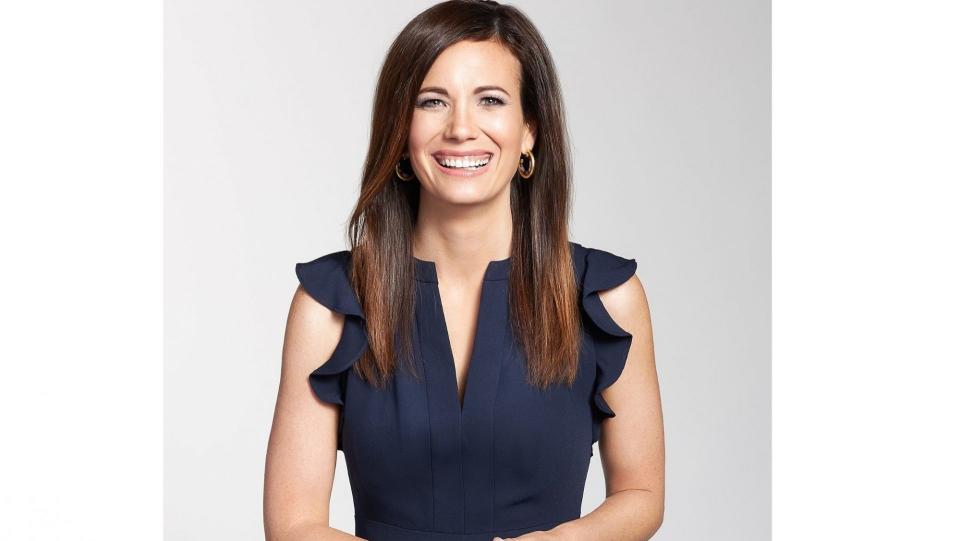6 Money Lessons That Will Change Your Life, According To Rachel Cruze

Finance expert Rachel Cruze is well known for her practical financial advice. Though she may be the daughter of finance guru Dave Ramsey, Cruze has plenty of financial wisdom all her own, and in a recent video she helps people who might be getting a lot of conflicting financial advice focus on six key money lessons that she said have changed her life.
Read on to find out how these can put your own finances in order.
Watch Out: I’m a Financial Advisor: 5 Things the Middle Class Wastes Money On
Read Next: 9 Things You Must Do To Grow Your Wealth in 2024
It's Going Viral: Want to Retire Rich? Suze Orman Says You're Missing This Key Money Move
Lesson 1: Track Your Expenses
Budgeting is one of the most important things you can do, Cruze emphasized, but it only works if you consistently track your spending. And not just general budgeting, but by expense categories.
“It can seem daunting, it can seem like a lot of work, but it’s honestly one of the best ways to succeed with a budget,” Cruze said.
Using tools like budgeting apps (such as EveryDollar) to categorize expenses is one great way to stay on top of your financial goals.
“Know what you’re spending in each category so you can actually be successful,” she added.
See More: I’m a Bank Teller: 4 Reasons You Should Withdraw Your Savings Right Now
Lesson 2: Delayed Gratification Is Key
Cruze pointed out that a lot of impulse purchases are tied to your emotions — be that from reactions to social media posts to retail therapy or just the exhilaration of buying something new.
However, if you let emotion lead, “You could be making a mistake when it comes to that purchase,” Cruze said. So waiting to purchase something increases the likelihood that you won’t be driven by emotion, and are thus less likely to overspend.
This is especially important for expensive items. She recommended you delay your purchase for a week to see if you still want it, allowing whatever strong emotion may be driving the temptation to buy to settle down.
Lesson 3: What You See Is Never the Whole Picture
We may all know intellectually that social media often shows a curated or unrealistic version of people’s lives, but it’s easy to forget and get caught up in wanting what others have, Cruze said. She reminded viewers of the aphorism, “Comparison is the thief of joy,” and insisted that everybody struggles but may not always put their struggles forward on social media.
It’s important not to compare your financial situation with others based on social media appearances, she said. Instead, focus on gratitude and be present for your own life instead of comparing yourself to others.
Lesson 4: Your Investing Strategy Should Be Boring
“If there’s something flashy, new and exciting when it comes to finances…it’s usually going to be a gamble,” Cruz warned.
Instead of seeking out “exciting” or “sexy” investments like crypto or some hot new company, she urged long-term, proven financial strategies like contributing to a 401(k) or a Roth IRA. They may seem boring, she said, but they are reliable.
Be smart by making investments with a proven track record. “When you’re consistent in those you’re really going to get the payoff in the end,” Cruze said.
Lesson 5: Spending on Experiences Brings Happiness
While certainly a little joy can come with buying a new thing, Cruze referenced Dr. Arthur Brooks, whose research shows that buying experiences with people you love is better than buying things.
While she doesn’t vilify the need to buy “stuff” and doesn’t tell people not to buy things that you need or want, she said, “But the lie is when we wrap our identity and our happiness into stuff… it is scientifically proven it does not bring long-term happiness.”
Cruze said this mindset has shifted her away from a more consumer mindset toward one that focuses on enjoying quality time with her loved ones.
Lesson 6: Plan For the Unexpected
In a nutshell, Cruze said “life happens” no matter how much money you have. This is even more true the older people get. Plan for the unexpected through things like an emergency fund, life insurance and a living will, to name a few.
Additionally, since there will always be unforeseen costs, Cruze recommended adding a “miscellaneous” category to your budget for things that you might not see coming. The key is to create a buffer so these unexpected events and expenses don’t put you in a hard place.
Cruze is all about taking control of your money to create a life you love, and these rules are no exception.
More From GOBankingRates
This article originally appeared on GOBankingRates.com: 6 Money Lessons That Will Change Your Life, According To Rachel Cruze